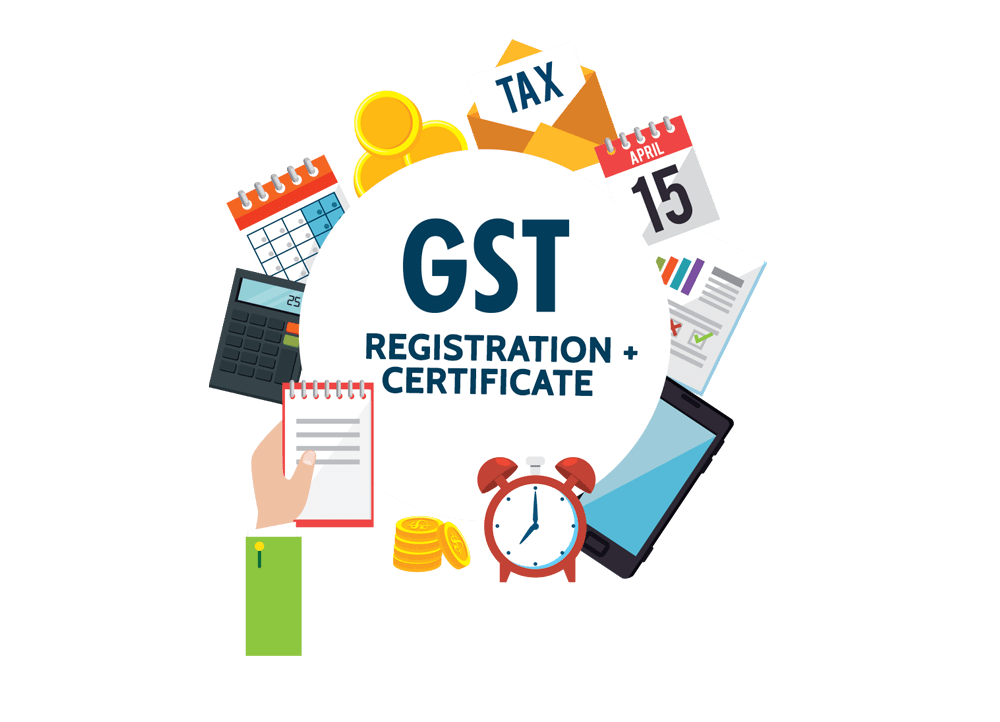From Beginning to Finish: The Ultimate Roadmap to GST Enrollment for Companies Seeking Financial Security
Browsing the intricacies of Product and Solutions Tax (GST) registration is a vital action for organizations pursuing economic stability. From understanding the essential concepts of GST to conforming with post-registration standards, the process can appear discouraging initially glance. Damaging down the roadmap into convenient steps can enhance the enrollment journey for companies looking to boost their financial standing. Allow's explore the necessary components that comprise this supreme roadmap and discover how each stage adds to laying a solid structure for financial success.
Comprehending GST Essentials
Delving into the fundamental concepts of Product and Solutions Tax Obligation (GST) is vital for getting a detailed understanding of its implications on businesses and the economic climate. Input Tax Obligation Debt (ITC) is a significant function of GST, allowing services to declare credit report for taxes paid on inputs, minimizing the total tax problem. Comprehending the fundamentals of GST is essential for businesses to abide with tax regulations, manage their finances efficiently, and contribute to the nation's financial growth by getting involved in a transparent tax obligation system.
Qualification Requirements for Enrollment
To register for GST, businesses must meet details eligibility criteria established by the government. The main qualification requirement is that any kind of business involved in the supply of items or solutions with an annual accumulation turnover above the threshold restriction set by the authorities must register for GST. Since the present laws, the threshold limit for GST enrollment is an annual aggregate turnover of 40 lakhs for organizations running within a state, with the exception of unique group states where the limit is 20 lakhs. In addition, certain organizations are called for to sign up for GST irrespective of their turn over, such as interstate suppliers, informal taxed persons, and organizations reliant pay tax obligation under the reverse fee device. It is critical for organizations to thoroughly examine their turnover and deal kinds to identify their GST enrollment obligations accurately. Failing to register for GST when eligible can result in charges and lawful repercussions, making it important for businesses to stick to the defined qualification requirements.
Files Needed for Enrollment
Having actually satisfied the eligibility requirements for GST enrollment, organizations must currently guarantee they have the requisite files in place to continue with the enrollment process successfully. The papers required for GST enrollment normally consist of evidence of service constitution, such as partnership action, enrollment certification, or unification certification for different types of organizations. In addition, companies need to give files developing the major location of service, such as a rental agreement or power costs.
Step-by-Step Registration Process
Commencing the GST registration process involves a collection of organized steps to ensure a compliant and seamless enrollment for organizations. The first step is to visit the GST website and fill up out the enrollment form with accurate details of business entity. Following this, the applicant obtains a Momentary Referral Number (TRN) which is click to investigate utilized to resume the application process if it's not finished in one go.
Next, all needed papers based on the list offered by the GST portal need to be uploaded. These papers usually include proof of service address, registration and identification evidence of marketers, monetary statements, and company entity's frying pan card.

Post-Registration Compliance Standards

Final Thought
Finally, services looking for financial stability needs to understand the fundamentals of GST, meet eligibility requirements, collect needed records, follow the step-by-step registration process, and comply with post-registration standards - Best GST registration services in Singapore. By adhering to these actions, companies can make certain compliance with tax laws and maintain monetary security over time
In addition, specific services are called for to register for GST irrespective of their turnover, such as interstate providers, casual taxable persons, and businesses accountable to pay tax under the reverse fee device.Having met the eligibility requirements for GST enrollment, organizations need to now ensure they have the requisite documents in place to continue with the registration procedure efficiently. The files required for GST enrollment generally include proof of service constitution, such as collaboration act, registration certification, or incorporation certification for different kinds of companies. In addition, companies require to give papers establishing the principal location of business, such as a rental arrangement or electrical energy bill.Commencing the GST enrollment process involves a series of organized steps to guarantee a compliant and seamless registration for services.